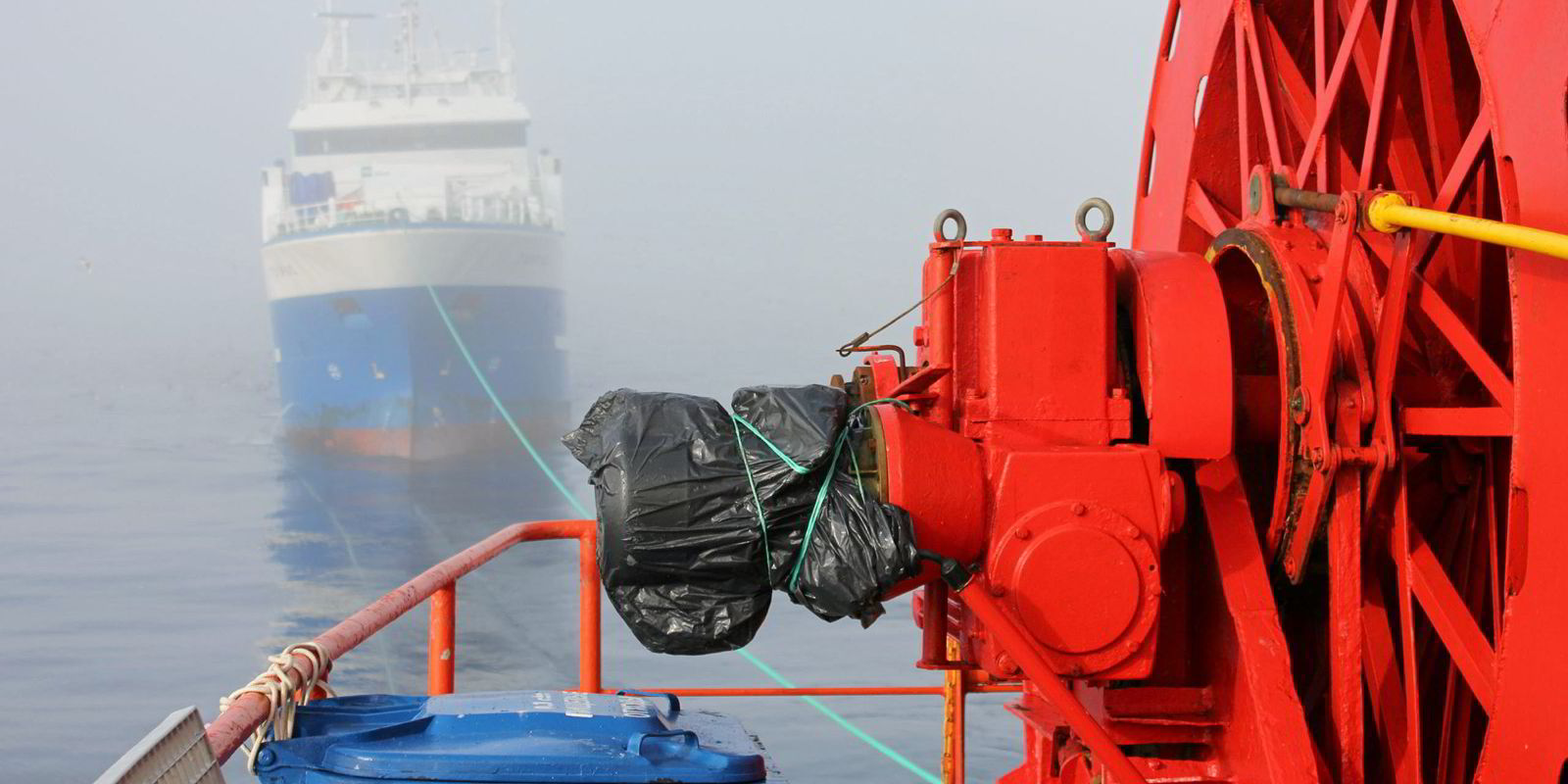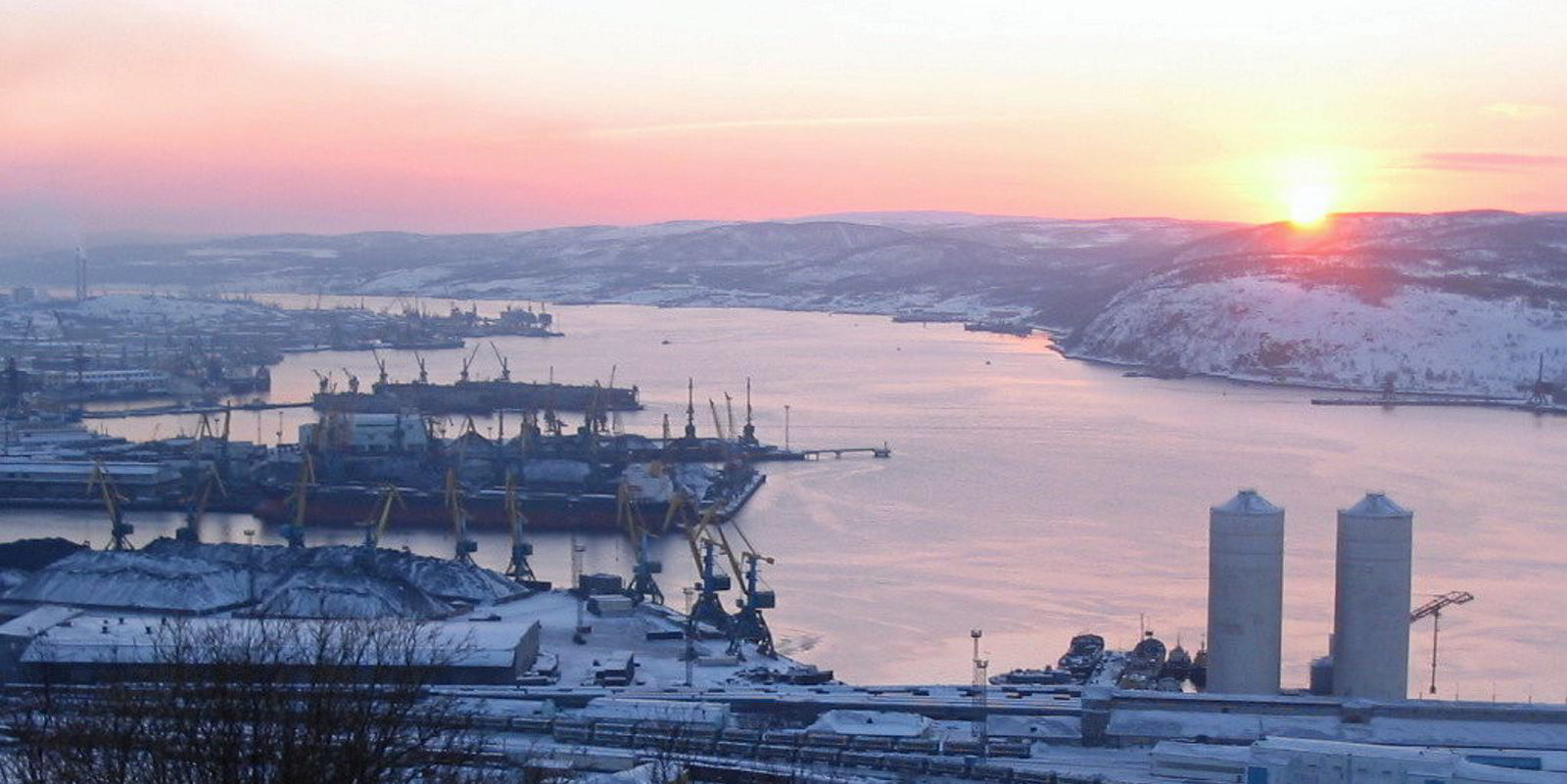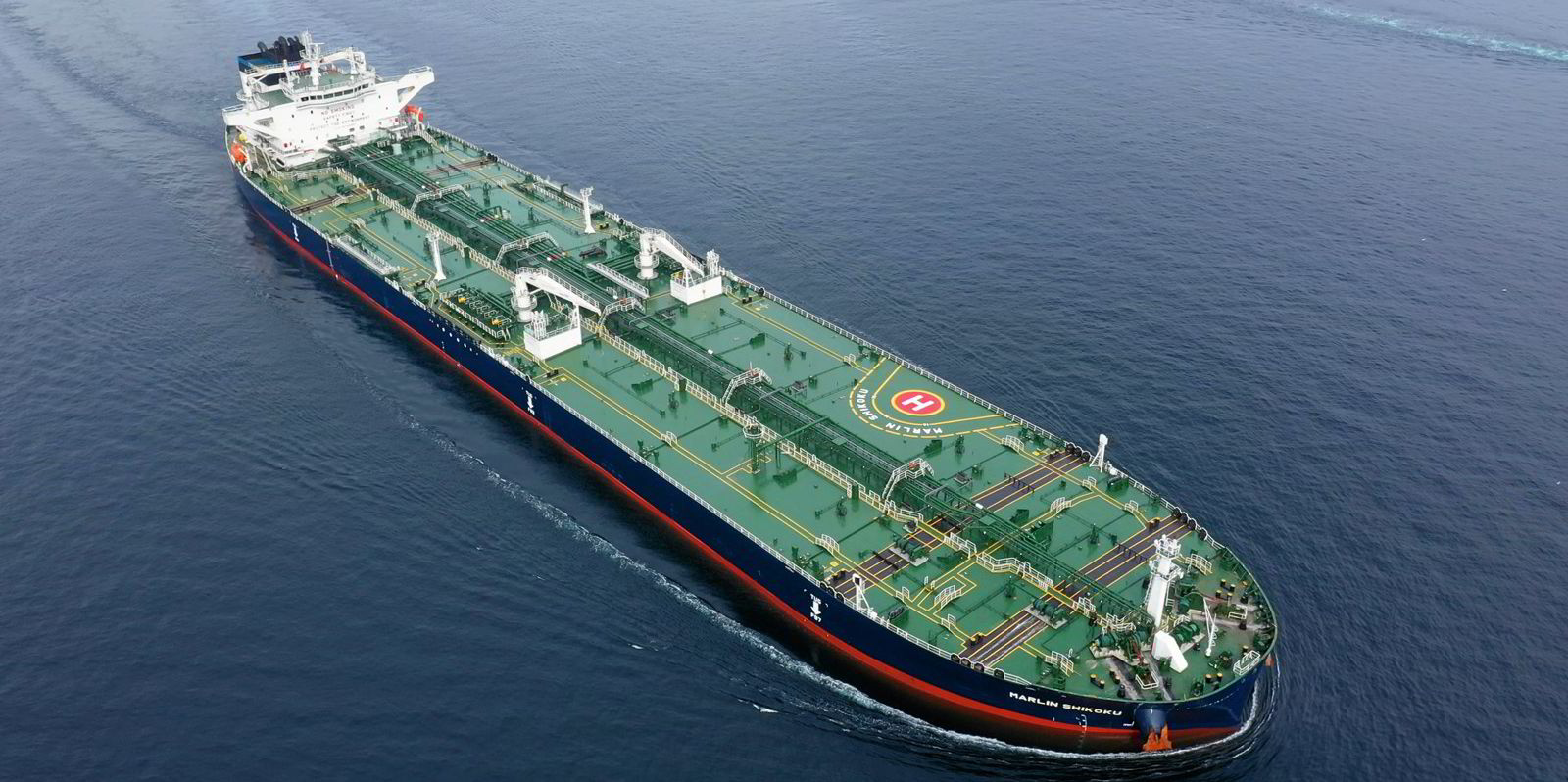Business is booming for some Russian bunkerers — as Western sanctions have had the unintended effect of eliminating their competition.
Murmansk-based physical supplier Scadar, which fuels ships in its home port and as far abroad as Spitzbergen in Svalbard, is looking to a good year after boosting its small fleet with a secondhand tanker.
“I can say moneywise we will have a very good result this year, because we did not expect this situation, in particular in high-seas supplies,” chief executive Vladislav Boyarskiy said.
Scadar has been in the news after its purchase of a controversial vessel, the 4,600-dwt tanker Marinstraum (ex-Dumankaya, built 2007), which Norway turned away in the summer over its former Russian flag status.
As TradeWinds recently reported, the ship was sold to Scadar in June and handed over in August, at a time when it has become increasingly difficult for Russian shipowners to do international business, whether as buyers, sellers or traders.
But in current circumstances, the bunkering business is good for privately owned Scadar.
The company owned by four operational colleagues has a fleet of three owned ships, all middle-aged high ice-class small tankers that fuel foreign vessels calling at Murmansk in the far north-west of Russia but that are also equipped to supply the Far North fishing fleet on the high seas.
Scadar’s business alternates seasonally.
Domestic Arctic supply
In the far-flung Arctic fishing waters, where it usually bases two of its ships during the fishing season, Scadar currently has no foreign customers. That is unusual because Russian and Norwegian fishing quotas overlap under cooperation agreements, and normally Russian and Norwegian bunkerers fuel fishing fleets of both flags.
“For half a year, I have not done a single supply to a foreign-flag fishing vessel,” Boyarskiy said.
On the other hand, Scadar no longer has competition from northern Norwegian and other foreign bunkers suppliers in serving the fuel requirements of Russian fishing vessels.
Boyarskiy told TradeWinds that his company has limited competition from other Russian players on the Barents and Norwegian seas, because its rivals are not equipped to fuel small vessels such as fishing boats while towing them. Two of Scadar’s tankers are capable of back-tow bunkering, which in all but the heaviest seas eliminates the risk of parting the fuel lines and spilling fuel oil.
“If the weather is not good, a conventional ship-to-ship transfer of bunkers [alongside] can take two to four days,” he said.
As for the other side of his business — harbour bunkering — he said Greek, Turkish, Indian and Chinese ships are still regular callers at Murmansk for legal cargoes, and remain customers. Despite some complications, they can still remit their money to a Russian fuel supplier such as Scadar.
“As a company that is not on any sanctions list, we are still doing bunkering in Murmansk for big Greek owners and others,” he said.
Frequent foreign visitors
Before the sanctions, Scadar cooperated with the major international bunker suppliers such as Dan-Bunkering, Bunker Holding Group and Unioil. Now, supply is often arranged by small independent bunker brokers based in trading centres around the world, with links to Russia.
Boyarskiy said his company’s business consists of about 70% of fuelling shipping vessels in the Barents and Norwegian seas and 30% of work nearer home, which includes fuelling foreign vessels in port at Murmansk and also trading clean products domestically.
“When the [fishing] season is over, I will bring the ships in to Murmansk for bunkering and for trading to Arkhangelsk,” he said.
Frequent foreign visitors to Murmansk include Greece’s Eastern Mediterranean Maritime and Centrofin and Turkey’s Besiktas, as well as Indian and Chinese shipowners.
“Vessels chartered in to carry fertiliser from Murmansk pay in roubles through Russian-owned bunkering brokers abroad,” Boyarskiy told TradeWinds. “Otherwise, the Greek owners who trade here can pay through European banks, as long as I can prove that I am not trading products from sanctioned companies like Rosneft or Gazprom Neft.”
Scadar was in a growth phase when sanctions were imposed following Russia’s invasion of Ukraine. For now, Boyarskiy’s expansion and renewal plans are on hold, after scrapping two vessels this year and buying the Marinstraum.
“We are happy with what we have,” he said. “This market is very difficult to predict, and until the situation with Ukraine will be cleared up, we don’t want to think about buying more ships.”





